#essayist
Explore tagged Tumblr posts
Text

David Foster Wallace.
#This is part of an unpublished interview given by David Foster Wallace to the German television channel ZDF in 2003#david foster wallace#literature#postmodernism#american literature#authors#writers#infinite jest#literary quotes#author quotes#writing#contemporary literature#book culture#fiction and nonfiction#There's a lot of narcissism in self-hatred#books#literary voice#interviews#Brief Interviews with Hideous Men#A Supposedly Fun Thing I'll Never Do Again#The Pale King#Girl with Curious Hair#Consider the Lobster#This Is Water#dfw#cult author#american writers#experimental fiction#essayist#2000s literature
772 notes
·
View notes
Text




#europeangreencrab#doing things#chess#breakfast#shoes#fashion#twee#twee aesthetic#boots#lgbtq#lgbtqia#wlw#journaling#essayist#tea#coffee
63 notes
·
View notes
Text

53 notes
·
View notes
Quote
Writing is a cerebral journey where the writer molds experience into useful thought capsules and thoughtfully takes recitative inventory of their spiritual depot. The act of personal essay writing is a subtle search to track and discover how a contiguous chain of occurrences links the essayist’s case history of rational and irrational behavior. Writing a person’s life story fosters acceptance of their prior personal failures and serves to open a doorway to living modestly and harmoniously.
Kilroy J. Oldster, Dead Toad Scrolls
#quotes#Kilroy J. Oldster#Dead Toad Scrolls#thepersonalwords#literature#life quotes#prose#lit#spilled ink#essay-writing#essayist#memoir#writing#writing-lesson#writing-life#writing-process#writing-quotes
23 notes
·
View notes
Text
Marcel Proust
Valentin Louis Georges Eugène Marcel Proust (July 10, 1871 – November 18, 1922) was a French novelist, literary critic, and essayist, best known for his monumental semi-autobiographical novel À la recherche du temps perdu (in French – translated in English as Remembrance of Things Past and more recently as In Search of Lost Time) published in seven volumes between 1913-27. The novel had a profound influence on 20th century literature and helped pioneer the literary form of the stream of consciousness novel. Proust is considered by critics and writers to be one of the most influential authors of the 20th century.

Marcel Proust in 1895

Photo of Marcel Proust by Otto Wegener (1849-1924). On photographer's cardboard, dimensions 14.2 x 10.2 cm. From the series of several poses in 1895, the bottom of the cardboard is not reproduced. Private collection

Photo of Marcel Proust by Otto Wegener (1849-1924), 1895. On photographer's cardboard, dimensions 14.2 x 10.2 cm. Private collection. Source: Vente Sotheby's 7 octobre 2014, Paris, bibliothèque R. et B. L.
16 notes
·
View notes
Text
please allow me to share my favorite excerpt of Stigmata by Hélène Cixous

"Sign my death with your teeth."
"Want me down to the marrow."
"Eat me up, my love, or else I'm going to eat you up."
L'amour du loup
#cannibalistic#ftm nsft#t4t nsft#ftm switch#queer nsft#trans ftm#cannibalposting#cannibalcore#romantic cannibalism#stigmata#l'amour du loup#helene cixous#essayist#love of the wolf
153 notes
·
View notes
Photo

(via JHALAL DRUT: Sanpei Shirato 白土三平)
10 notes
·
View notes
Text
There's a legend about a Chinese painter who was asked by the emperor to paint a landscape so pristine that the emperor can enter it. He didn't do a good job, so the emperor was preparing to assassinate him. But because it was his painting, legend goes, he stepped inside and vanished, saving himself. I always loved that little allegory as an artist. Even when it is not enough for others, if it is enough for you, you can live inside it.
- Ocean Vuong, from an interview with Zoe Hitzig in Prac Crit
#relatable quotes#life quotes#thoughts#book quotes#inspiring quotes#quoteoftheday#relationship quotes#inspirational quotes#love quotes#romance quotes#ocean vuong#vietnamese#essayist#american poetry#american writer#quotes
30 notes
·
View notes
Text

6 notes
·
View notes
Text

"You are also what you have lost" is a phrase often attributed to Jorge Luis Borges, and it encapsulates the idea that our identity is not only shaped by what we possess, but also by what we have lost, including experiences, relationships, and even parts of ourselves over time; it suggests that loss can deeply define who we are.
Interpretation:
This quote can be interpreted in various ways, depending on the context:
Personal growth: Losses can sometimes lead to personal growth and a deeper understanding of oneself.
Sense of incompleteness: The idea that we are always missing something can contribute to a feeling of being incomplete.
Memory and identity: Our memories of lost things can become part of who we are.
#jorge luis borges#classic literature#philosophical literature#fantasy genre#magic realism#self awareness#conscious living#author#poet#essayist#latin american literature#our journey to balance#inspirational quotes#quote of the day#dark academia#light academia
21 notes
·
View notes
Text
You deserve better and you know that. You know you deserve a gentle, ceaseless love that meets you where you’re at. Not a love that eats off of you. Not a love that desires being at odds with you constantly. You deserve validation as often as you need it. You deserve spontaneity and sober surprise visits. You deserve the effort that it takes to love you on your lowest days because it does take effort. You deserve the paragraphs of feelings that you once believed you were too imperfect, too broken to evoke. A love that constantly makes you anxious is not the love you deserve. A love that is constantly telling you that you’re not good enough is not a love you deserve. A love that constantly lies is not a love you deserve. You deserve to be loved as you are because even at your lowest, your own love has had the capability to meet others where they were.
-ka
#poetry#poem#writing#love#poet#black writer#black poets on tumblr#black love#heartbreak#healing#stickytypewriter#relationship#spilled poem#spilled prose#spilled emotions#spilled poetry#write#writer#essayist#essay
21 notes
·
View notes
Text
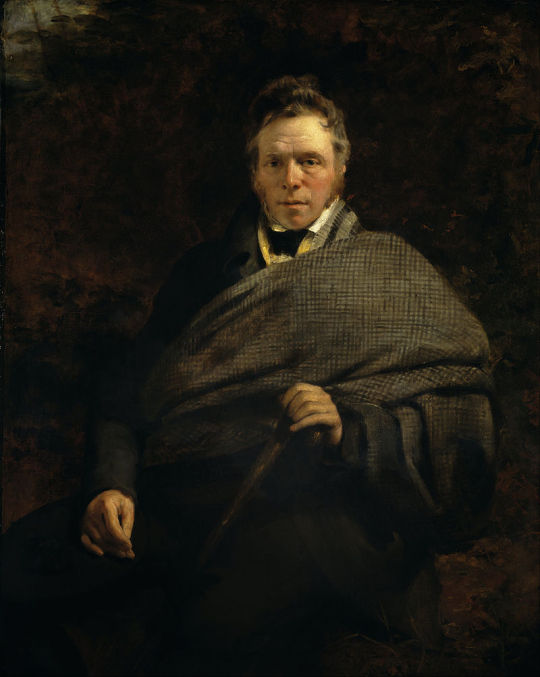
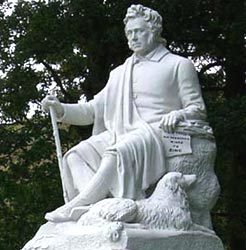
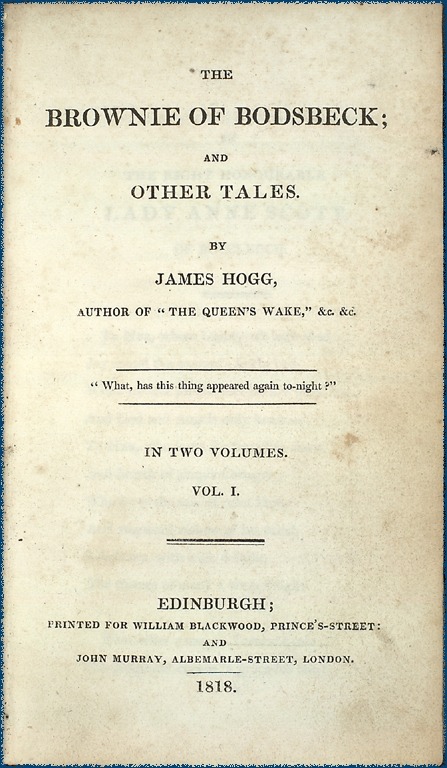
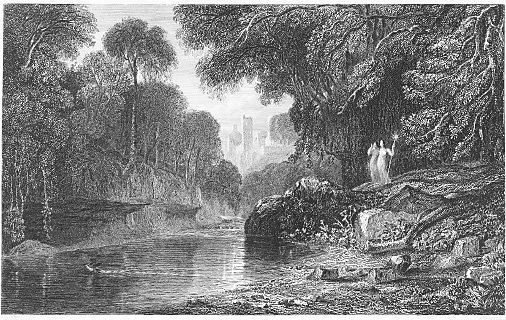
On November 21st 1835 James Hogg, the poet known as the Ettrick shepherd, died in Ettrick.
As his date of birth is unknown and only a gueestimate, and it being so close, I will forgo the December date and concentrate on todays post.
Like Burns and Scott, James Hogg was keenly interested in Song. He published a book of music known as The Forest Minstrel. Originally published in 1810, The Forest Minstrel is the complete collection of songs by Hogg, featuring his first compositions as a shepherd in Ettrick and those inspired by early contact with the literary culture of Edinburgh. Hogg also taught himself to play the fiddle, and rapidly began to make a name for himself as "Jamie the Poeter", a singer of traditional ballards and reciter of the rich folklore of the Scottish Borders, he could also draw, as seen in the pic which shows The River Esk in Roslin Glen, a body of water I know very well.
James Hogg was born on a farm near Ettrick Forest in Selkirk and baptized there onor around December 9th. The house that James Hogg was born in was at Ettrick Hall, a few miles from St Mary's Loch. Here a statue commemorates his birth. He lived here for the first seven years of his life. James Hogg had little education, and became a shepherd, living in poverty. His father was a shepherd and he too took on the title, hence his nickname, The Ettrick Shepherd. His employer, James Laidlaw of Blackhouse, seeing how hard he was working to improve himself, offered to help by making books available. Hogg used these to essentially teach himself to read and write. He had achieved this by the age of 14. In 1796 Robert Burns died, and Hogg, who had only just come to hear of him, was devastated by the loss. He struggled to produce poetry of his own, and Laidlaw introduced him to Sir Walter Scott, who asked him to help with a publication entitled The Minstrelsy of the Scottish Border. In 1801, Hogg visited Edinburgh for the first time.
His own collection, The Mountain Bard, was published in 1807 and became a best-seller, allowing him to buy a farm of his own. Having made his name, he started a literary magazine, The Spy, and his epic story-poem, The Queen's Wake (the setting being the return to Scotland of Queen Mary after her exile in France), was published in 1813 and was another big success. Yesterdays subject of a post, William Blackwood recruited him for the Edinburgh Magazine, and he was introduced to William Wordsworth and several other well-known literary figures. He was given a farm by the Duke of Buccleuch, and settled down there for the rest of his life.
Hogg had already made his reputation as a prose writer with a practical treatise on sheep's diseases; and in 1824 his novel, The Private Memoirs and Confessions of a Justified Sinner, was another major success. He became better known than his hero, Burns, had ever been.
Hogg's poetry and essays were not as widely read as in his contemporary era. However "Justified Sinner" remains important and is now seen as one of the major Scottish novels of its time, and absolutely crucial in terms of exploring one of the key themes of Scottish culture and identity: You might be surprised to know that the Scottish novelist Irvine Welsh cited Hogg, especially "Justified Sinner" as a major influence on his writing.
Hogg published mainly poetry until he was in his late forties. A particularly notable poem from this period is The Queen's wake, a book-length narrative in which the poets of Scotland assemble at Holyrood Palace for a bardic contest to celebrate the return of Mary Queen of Scots from France. A notable series of novels followed. Hogg's alternative version of James Macpherson's Ossian poem, Fingal. Many of Hogg's best later poems were collected in A Queer book.
Hogg's writings explore the supernatural with great power and sophistication, as in The Justified sinner, which is regarded by many as the greatest of all Scottish novels. Equally powerful is The Three perils of Woman, which explores the terrible aftermath of Culloden. The Three perils of Man is Hogg's version of a Medieval romance. Overflowing with vivacity, this novel is full of devilry and witchcraft. Much of the action takes place at Aikwood in the Ettrick valley, where Gibbie Jordan witnesses a wedding between a demon and a witch.
Aikwood Tower was until recently the home a Hogg exhibition that was open to the public during the tourist season. The Hogg exhibition has since moved as Aikwood is no longer open to the public.
Many of you will know by now I prefer shorter poems, I will leve a link below where you can find more of his work, but for now here is one of his shortest poems.
O, love, love, love! Love is like a dizziness; It winna let a puir body Gang about his biziness!
8 notes
·
View notes
Quote
The womb of the world births us. My filth comes from the same earthwork that gives rise to all stories. My interior light connects me with all the other creatures that inhabit this world of rocks, air, grass, woods, and water. My genetic code links me inextricably with all of nature. I enter the medley in the river of life with the ability to respond as life unfolds before my childlike eyes. My homemade medicinal poultice might not be of any benefit to other people. Nonetheless, we should each write our stories because each of us aims to attain a greater degree of awareness of our own authenticity. We owe a moral obligation to our family, friends, and ourselves as well as to the community to make a determined effort to wring the most out of life. We must applaud all efforts to investigate the human condition. Even if my writing amounts to nothing more than a clumsy attempt to travel the same tracks other people burnished with much more insight, clarity, precision, and style, it is an act of self-definition to ascribe to any philosophy. Philosophy represents a living charter; it is a life of action.
Kilroy J. Oldster, Dead Toad Scrolls
#Kilroy J. Oldster#Dead Toad Scrolls#quotelr#quotes#literature#lit#autobiography#essay-writing#essayist#essays#memoir#memoir-writing#memories#personal-essay#personal-essays#philosophy#philosophy-of-life#philosophy-quotes#writers-on-thinking#writers-on-writing#writing
6 notes
·
View notes
Text

10 notes
·
View notes
Note
I need your thoughts in a Gilbert who didn't meet Anne until later in life- let's say at redmond
For the sake of historical accuracy, PLEASE PICTURE ME DOING THE RASPUTIN DANCE as I read this. I love this ask, and I stan the asker. 🫡❤️
I think we’ve briefly talked about this before, in a superficial sort of way, but I’m obviously thrilled to get a little (read: okay, a lot) more detailed.
What would Gilbert be like, if he hadn’t met Anne until Redmond?
Anytime anyone takes this approach in fanfiction… I admit; I cower in a corner and try to look away. Of all the Anne multiverses, this is my least favourite. Like, easily. This notion makes my head and my heart say OW OW OW. For me, a big part of why Anne and Gilbert went in so deep was the heft and weight of the history between them. Their story is a slow burn that lasts well over a decade, these two idiots-in-love have known each other since they were 11 and ‘nearly 14’ respectively. We have all the good stuff, right? Their initial meet-cute-to-end-all-other-meet-cutes, the frenemies, the one-then-two-sided pining, the grand gestures that give way to an honest friendship (no one makes Anne laugh like Gilbert does, and he’s the SOLE fellow she feels comfortable enough with to share her honest feelings with, also see: Rollings Reliable)… it just means so much to me. When we take that away, we take away so much of what makes them… them.
But of course, you can rely on Gilbert himself to articulate these thoughts, too.
“Yes, it’s beautiful,” said Gilbert, looking steadily down into Anne’s uplifted face, “but wouldn’t it have been more beautiful still, Anne, if there had been NO separation or misunderstanding . . . if they had come hand in hand all the way through life, with no memories behind them but those which belonged to each other?” — Gilbert ‘the absolute sweetest and most poignant peach’ Blythe, Anne of Avonlea
But hey. Let’s go there anyway, because it v interesting and natural to wonder and speculate about.
To make it make sense, we must first subtract Anne from Green Gables, and Avonlea.
And 🥴… there’s a lot of collateral there. Minnie May Berry would’ve suffered the most and pays for the Anne-void discrepancy with her actual life. Lavendar Lewis? She would’ve never reconnected with Stephen Irving… and Mister Harrison would have stayed estranged from his wife. There’d be no A.V.I.S., although that seems like teeny-tiny in the wake of the rest. On the flip side, would Matthew have lived longer had the boy meant for Green Gables actually been sent? A solid maybe. And Gilbert? He would’ve never had any sense knocked (cracked, slated) into him.
Before Anne arrives in Avonlea we have a couple canon descriptions of Gilbert, thanks to Diana. We learn that he ‘torments the life’ out of the girls (and further, that they like it), and that he’s “aw’fly” handsome. We first see him pinning Ruby Gillis’ hair unto the back of her desk chair. A hot minute later, he’s all but desperate for Anne to look at him. Moreover, he thinks Anne should look at him.
“Gilbert Blythe wasn’t used to putting himself out to make a girl look at him and meeting with failure.” — Anne of Green Gables
Without Anne? Gilbert Blythe is probably a bit of cad (need that gif of Josie Pye saying, “Gilbert Blythe is rake” right here). Just kind of a regular hoe. BUT. We have a canon quote to support this, too.
‘Even in quiet Avonlea there were temptations to be met and faced. White Sands youth were a rather “fast” set, and Gilbert was popular wherever he went. But he meant to keep himself worthy of Anne’s friendship and perhaps some distant day her love; and he watched over word and thought and deed as jealously as if her clear eyes were to pass in judgment on it.’ — Anne of Avonlea
I feel in terms of just straight-up facts, we can reduce Anneless Gilbert to :
1. a smarty pants in an academic sense,
2. a smarty pants in the jokey non-academic sense
3. popular
4. cute, and aware he’s cute; that ‘teasing smile’ never really quits and he carries on winking ‘with inexpressible drollery’ just whenever he sees fit
This list looks a lot like the Gilbert we canonly know, until we arrive at…
5. egotistical on a degree level of… eh, medium-rare?
Without Anne to ego-check him; Gilberts pride remains fully intact, and what’s more, it’s grown and developed into a mature and self-assured vanity by the time he lands in Kingsport. Without Anne, by the time he’s 17, I think he’s probably walked home and/or kissed every pretty or exceptional girl in a good fifteen-mile radius. I would alsooo guess that Avonlea folks imagined he’d eventually settle down with Ruby. But what they don’t know is that he’s gone kissed every last one of the fine Gillis sisters. Even the oldest ones, Myra and Sara. I would also confidently speculate that this boy’s rather cavalier with his Romeo-ing ways, too, and that he’s inadvertently hurt some very real feelings… without even fully realising it. He just doesn’t take anything… seriously. Which Gillis sister did he kiss first? Oh, don’t ask him. He doesn’t remember.
And let’s support this guess with another semi-related and semi-justifying canon quote?
"Did I ever correspond with Ruby Gillis? I'd forgotten. Poor Ruby!” — Gilbert ‘dashing out heart hopes everywhere’ Blythe, Anne of Ingleside
But awoooo, settle down? No, Sir, not Gilbert. Gilbert wanders into Redmond a bachelor, free and clear of any responsibilities or ties, back home. ‘Excellent creatures though they are,’ there’s not been a single girl that he’s crossed paths with that has yet been able to stir his deeps… or even his shallows.
ADDITIONALLY… he walks into Redmond maybe two or three years earlier than he did in the books. Because without Anne, Gilbert has no reason to give up the Avonlea school – he saves his would-be room and board expenses by living at the Blythe homestead, and very simply and economically gets to college all the quicker for it. He does still want to be a Doctor. He has a great-uncle that’s a Doctor over in Four Winds, and Gilbert still believes…
“It’s a splendid profession,” he said enthusiastically. “A fellow has to fight something all through life . . . didn’t somebody once define man as a fighting animal? . . . and I want to fight disease and pain and ignorance . . . which are all members one of another. I want to do my share of honest, real work in the world, Anne . . . add a little to the sum of human knowledge that all the good men have been accumulating since it began. The folks who lived before me have done so much for me that I want to show my gratitude by doing something for the folks who will live after me. It seems to me that is the only way a fellow can get square with his obligations to the race.” — Gilbert ‘getting rather sentimental now’ Blythe, Anne of Avonlea
Now here’s where I fall off and digress again. I believe this is the end of educated guessing and reasonable fact-inventing about what an Anneless Gilbert probably looks like.
But for bonus points, what happens with this version of Gilbert collides with a version of Anne that never made it to Avonlea? Do they still get together? Likely. But HOW?
If someone put a gun to my head (lollll) and made me write (as previously denounced, I realise) a fanfiction about it (warning, it’s definitely gonna be giving… sensationalist and 🤌🏻 fanfictiony, but really if you’re gonna go AU… go AU; all this fully recognising that this would never be a LMM setting), here’s how I’d try to pull it off:
Anne, by the time she’s fourteen, has run away from the Hopetown Assylum. It’s nothing but hunger (Anne of Ingleside), verbal abuse, maybe worse abuse, and (despite the name) hopelessness there. Anne’s resourceful, we know she has a special knack for making things happen, and she decides to strike out on her own. But not without a plan. There’s not a lot of jobs for kids out there that also come with a safe place to lay their heads at night (though she might make up her mind to sleep under a nice obliging tree, should the need arise; “I had made up my mind that if you didn’t come for me to-night I’d go down the track to that big wild cherry-tree at the bend, and climb up into it to stay all night. I wouldn’t be a bit afraid, and it would be lovely to sleep in a wild cherry-tree all white with bloom in the moonshine, don’t you think?” ), so she, playing to her strengths and daring to dream, thinks of drama and being a stage actress. She gives a spectacularly good reading of Tennyson’s “the Lady of Shalott” to a Hopetown Theatre manager who not only pities her but also finds her wildly entertaining. Alas… he cannot offer her a job. He tells her, though, that he has contacts with W.W. Cole Circus (they toured Nova Scotia in the 1880’s, I checked this out too; I have whatever unimaginative disability it is that requires even fantasies to have bearings in reality), that W.W. Cole is always looking for cheap labour while they tour. Only!! They really just hire/have use for boys. (We can circle back to déjà vu-ish Green Gables problems here.) Anne, however, doesn’t care. She’s got a lead. She knows she can work just as hard as any boy, and means to prove it. She’s given a job (mucking elephant stalls, for starters) on a trial basis (circling Avonlea again), and does such a bang-up job that she’s kept on for a week. She becomes an instant friend with “Nova Scotian Giantess” Anna Swan. (Also a real person, from a real W.W. Cole circus circuit, pls see above regarding fantasies borne from reality. She was 7 feet, 11 inches tall, 400 pounds, and eventually married another ‘giant’ from Kentucky). Anna advocates for Anne to be kept on permanently (trying to @ Aunt Josephine almost, here). Anna, who is emphatically religious (irl when she retired, she went on to teach Sunday School at her church) and ladylike and kind, sees to Anne’s studies and upbringing when they aren’t performing. She recognises Anne’s academic abilities and leverages her own position to see that Anne is promoted, as the years carry on. Anna, duh, encourages Anne to save her wages—enough to get herself through four years at Redmond college… that she might go on to have a career outside the instability of circus acts. By the time Anne is 20, she’s far more widely recognised as Lady Cordelia Fitzgerald, and she’s a terribly accomplished trapeze artist and a very elegant acrobat (let’s throw in one minor incident where she fell off a tightrope and broke her ankle here, as we circle back to Avonlea ridgepoles), as well as especial homies with every tiger and elephant and cigar-smoking-chimp that graces the ring. She woefully wears the assigned pink tights and costume, despite often still lamenting that “red haired people should never wear pink.” She also has finally saved enough of her wages to get herself a B.A.
Her very last performance sees her signing off at W.W. Cole’s Kingsport show. Who do you bet’s in the audience? Gilbert Blythe. The football captain, Lamba Theta inductee, incumbent class president… who also, as it happens, is there escorting one Philippa Gordon.
“I saw only one really handsome fellow among them. He went away before you came. I heard his chum call him Gilbert.” — Phil Gordon, Anne of the Island
Gilbert’s taken with ‘Lady Cordelia’ at first glance. Phil’s also taken with her. The two spend the rest of the show trying to spot Lady Cordelia in her support roles of the other acts. Is that Lady Cordelia lighting the fiery rings? At any rate, for Gilbert, the deeps? Shaken, stirred, invariably earthquaked, when he and Phil get to make actual introductions at the end of the evening production, as they and the rest of the crowd walk out, stage-door style. Anne, on the other hand, is unimpressed at best.That boy was “awfully bold to wink at a strange girl” (he’s not even the first fellow to wink at her in the last thirty minutes)… all while another girl was on his arm, no less. Rather a splendid chin, though. 👀 Maybe one could say he was equally as handsome as he was bold.
“But, of course, the one I like best I can’t get. Gilbert Blythe won’t take any notice of me, except to look at me as if I were a nice little kitten he’d like to pat. Too well I know the reason. I owe you a grudge, Queen Anne.” — Philippa Gordon, Anne of the Island
That small matter aside, who else might be in attendance? I mean, Roy Gardner, of course. (This could easily substitute his, “And you are the Miss Shirley who read the Tennyson paper at the Philomathic the other evening, aren’t you?”)
Days later, and still wanting to know exactly who she was, Phil catches sight of ‘Lady Cordelia’ (wearing Redmond colors, at that!) reading epitaphs at Old St. John’s cemetery, and we slip back into canon here. Almost. Phil and Anne become fast friends, as is natural and fitting, but far less can be said for poor Gilbert, who now has a very awkward time trying to gently cast off Phil while simultaneously wanting to cosy up to her new freshette friend. After all, Anne is Gilbert’s ideal woman.
If Gilbert had been asked to describe his ideal woman the description would have answered point for point to Anne, even to those seven tiny freckles whose obnoxious presence still continued to vex her soul. Gilbert was as yet little more than a boy; but a boy has his dreams as have others, and in Gilbert’s future there was always a girl with big, limpid gray eyes, and a face as fine and delicate as a flower. — Gilbert Blythe, Anne of Avonlea
For Gilbert to finally win over that ‘Queen Anne, my Queen Anne, queen of my heart’ we’ll need to see academic rivalry, a relationship-mending grand gesture (these two starting off on the wrong foot is a canon event, and I cannot interfere), Gilbert Saves a Life or Two (lots of congenital health problems for people of Anna’s size, her hand is shooting right up as a volunteer for this incident, and by now Gilbert is nearly white coat qualified), one rejected proposal after two years of genuine friendship, Anne and Roy fully courting, and Gilbert Blythe’s to ego finally give way to the purity of his dreams and aspirations.
“He had made up his mind, also, that his future must be worthy of its goddess. She held over him the unconscious influence that every girl, whose ideals are high and pure, wields over her friends; an influence which would endure as long as she was faithful to those ideals and which she would as certainly lose if she were ever false to them. In Gilbert’s eyes Anne’s greatest charm was the fact that she never stooped to the petty practices of so many of the Avonlea girls—the small jealousies, the little deceits and rivalries, the palpable bids for favor. Anne held herself apart from all this, not consciously or of design, but simply because anything of the sort was utterly foreign to her transparent, impulsive nature, crystal clear in its motives and aspirations.” -- Anne of Avonlea
And ultimately, this seems like a good place for that old case of typhoid for Gilbert and for Anne to realise her feelings, too. It would take Gilbert a full four years and nearly dying trying, to put a ring on it. For my last trick (read: in conclusion), here's a cute lil’ attempt at more canon justification for this utter nonsense (if you just squint):
"Mother dearwums," said Jem, "can I have those old ostrich feathers in the garret to sew in the back of my pants for a tail? We're going to have a circus tomorrow and I'm to be the ostrich. And we're going to get an elephant." "Do you know that it costs six hundred dollars a year to feed an elephant?" said Gilbert solemnly. "An imaginary elephant doesn't cost anything," explained Jem patiently. Anne laughed. "We never need to be economical in our imaginations, thank heaven." — Anne of Ingleside
SO FRIENDS. ROMANS. @batrachised.
What would yooooour take on an Anneless Gilbert be? An Avonlealess Anne? I’m sooo curious.
#wow this is long#essayist#if there was an olympic team for AoGG au speculation i do believe i would’ve just qualified#i don’t dare tag this montgomery#19th century circus 🎪
97 notes
·
View notes
Text
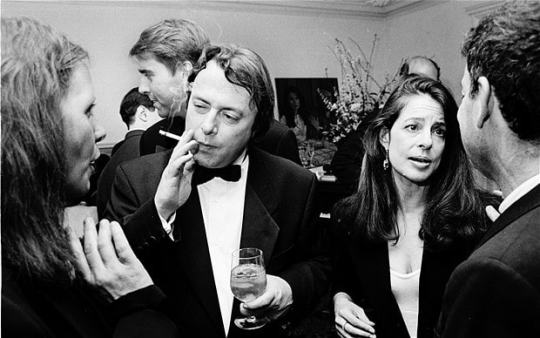
Christopher Hitchens and his wife Carol Blue at a Washington Correspondents Dinner in 1995 (Photo by Dafydd Jones)
"I miss his perfect voice. I heard it day and night, night and day. I miss the first happy trills when he woke; the low octaves of “his morning voice” as he read me snippets from the newspaper that outraged or amused him; the delighted and irritated (mostly irritated) registers as I interrupted him while he read; the jazz-tone riffs of him “talking down the line” to a radio station from the kitchen phone as he cooked lunch; his chirping, high-note greeting when our daughter came home from school; and his last soothing, pianissimo chatterings on retiring late at night.
I miss, as his readers must, his writer’s voice, his voice on the page. I miss the unpublished Hitch: the countless notes he left for me in the entryway, on my pillow, the emails he would send while we sat in different rooms in our apartment or in our place in California and the emails he sent when he was on the road. And I miss his handwritten communiqués: his innumerable letters and postcards (we date back to the time of the epistle) and his faxes, the thrill of receiving Christopher’s instant dispatches as he checked-in from a dicey spot on some other continent.
The first time Christopher went public and wrote about his illness for Vanity Fair, he was ambivalent about it. He was intent on protecting our family’s privacy. He was living the topic and he didn’t want it to become all-encompassing, he didn’t want to be defined by it. He wanted to think and write in a sphere apart from sickness. He had made a pact with his editor and chum, Graydon Carter, that he would write about anything except sports, and he kept that promise. He had often put himself in the frame, but now he was the ultimate subject of the story.
His last, unfinished, fragmentary jottings may seem to trail off, but in fact they were written on his computer in bursts of energy and enthusiasm as he sat in the hospital using his food tray for a desk.
When he was admitted to the hospital for the last time, we thought it would be for a brief stay. He thought – we all thought – he’d have the chance to write the longer book that was forming in his mind. His intellectual curiosity was sparked by genomics and the cutting-edge proton radiation treatments he underwent, and he was encouraged by the prospect that his case could contribute to future medical breakthroughs. He told an editor friend waiting for an article, “Sorry for the delay, I’ll be back home soon.” He told me he couldn’t wait to catch up on all the movies he had missed and to see the King Tut exhibition in Houston, our temporary residence.
The end was unexpected.
At home in Washington, I pull books off the shelves, out of the book towers on the floor, off the stacks of volumes on tables. Inside the back covers are notes written in his hand that he took for reviews and for himself. Piles of his papers and notes lie on surfaces all around the apartment, some of which were taken from his suitcase that I brought back from Houston. At any time I can peruse our library or his notes and rediscover and recover him.
When I do, I hear him, and he has the last word. Time after time, Christopher has the last word."
- From an edited version of Carol Blue’s afterword to Mortality by her husband Christopher Hitchens
#christopher hitchens#heretic#heretics#writing#author#writer#journalist#essay writing#essayist#bard#orator#poet#quote#philosophy#photography#film#photographer#portrait
18 notes
·
View notes